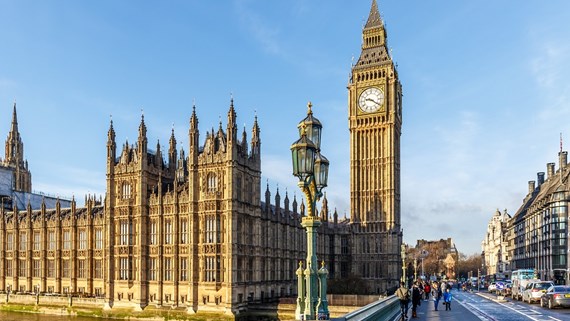A slide to anarchy: parliamentarians who act above the rule of law
Insight

There can be little doubt that any number of powerful figures across society have abused their position of power which has involved, in part, inducing individuals into non-disclosure agreements (NDAs) to cover up behaviour that may have had very serious and long-lasting consequences for the victims. Such behaviour, and the methods used to facilitate and hide such conduct, should be rightly scrutinised, but done so through the proper channels. As much as there are genuine cases of serious wrongdoing, there are also innocent individuals falsely accused. It is not a subject area fit for ill-informed summary judgment to be dispensed given the potential harm caused to genuine victims and by those falsely accused where the judgment is wrong.
When Lord Hain, hiding behind the cloak of parliamentary privilege, last month 'outed' Sir Philip Green in the House of Lords as being the businessman behind a temporary court injunction which prevented the press from identifying him as being accused by former employees of wrongful behaviour towards them, this effectively prevented Green from being able to defend himself before the court without the court of public opinion having already reached its own verdict.
Hain's justification for naming Green was given as being that he felt it was his "duty" after being "in contact with someone intimately involved in the case" because "the media [had] been subject to an injunction preventing publication of the full details of a story which is clearly in the public interest". What also emerged shortly thereafter was Hain's affiliation with the law firm representing the paper.
It is unclear under what "duty" Hain was acting. Nothing in Hain's remarks suggested he had read the public judgment - he in fact subsequently admitted he was "completely unaware" that Gordon Dadds, the law firm at which he is an adviser, represented the paper (despite the law firm's name being in bold on the first page of the judgment). Had he done so, he might have been in a better place to at least form a considered view. One duty he should arguably have been cognisant of was his duty as a parliamentarian to respect the independence of the judiciary, a key tenet of this country's constitution. Whether as an ordinary citizen or a parliamentarian, respect for the judicial process is critical in a democratic society. Having seemingly not read the open judgment (the closed judgment contains far more details about the allegations and facts within the case), it is extraordinary that Hain considered himself to be in a better position than the three senior judges who had heard the evidence to decide what is in the public interest and the balance to be drawn with Green's own rights.
Whatever one's thoughts are about Green, a much-derided figure post the BHS fallout, it is important to avoid falling into the trap of judging the public interest based upon a negative of Green himself. It may be too easy when learning of Green's name alongside reading 'high profile figure', 'NDA' and 'injunction' in the same sentence to join forces with the press' disgust and disregard the injunction as an abuse of process and power.
However, as the judgment itself makes clear, "each case turns on its own particular facts". While the full details were not set out in the public judgment , there is more than enough in that version of the judgment to understand why the Court of Appeal made its interim order. Critical were:
1. The risk of irreparable harm if no order was made
At the stage of the proceedings, short of any trial, what the court had before it was a series of allegations made against Green by five former staff members. At the same time, Green strenuously denied those allegations. The competing claims had not been tested and until such time as they could be assessed, it was not possible for a court to form a view on their merits.
It was argued on behalf of Green that if the interim injunction was not put in place, irrespective of the true verdict reached by the court at a trial, the harm caused to Green and his related companies in the meantime would be substantial and irreparable. He would face a trial by media in respect of which he would be unable to properly defend himself since he was bound by the confidentiality agreements in relation to the five settled claims. This was an obvious risk and one which would be undoubtedly unfair to Green in the event that the Court subsequently found him not guilty of the allegations levelled against him. Of course, in outing Green, Hain achieved exactly what the Court sought to guard against. If that had been his intent, then he achieved his aim.
2. The injunction was temporary
What many observers, possibly Hain included, failed to appreciate was that the injunction was a temporary, interim order, the purpose of which was to maintain the status quo until the trial. In "holding the ring", the court did nothing more than preserve a neutral position until it had heard all the evidence. However, the court also recognised that any delay of publication of information that may be in the public interest was undesirable. Consequently, it ordered a "speedy trial" to reduce the time before which the facts – one way or another – became known.
3. The complainants had taken independent legal advice before signing their NDAs
Much of the media reporting on the big reveal drew comparisons with Harvey Weinstein. This was misrepresentative. In the case of the latter, there were allegations that Weinstein's victims were forced into signing an NDA without having taken independent advice making clear what the repercussions of doing so would be. In Green's case, there was no evidence before the court that the agreements were secured by bullying, harassment or any other undue influence by Green or his associated companies. They had each received legal advice with the court accepting there was sufficient equality of arms, meaning none of them would have been forced to enter into the confidentiality arrangements. The complainants were free to refuse to sign an NDA. Citing a previous case, the Court of Appeal stated that "if such a non-disclosure agreement was entered into with legal advice, the court will be slow to refuse to enforce it as disproportionate". There is a public policy interest in upholding the obligations contained in a legitimate contract.
4. There is a public interest in the protection of confidential information
The court recognised that where duties of confidence are contained in agreements resulting in consensual settlement agreements, there is also a public interest in such agreements being upheld by the courts. One of the issues at play was whether the allegations against Green had been obtained by the Telegraph in breach of confidentiality (given that it would have been aware of the NDAs). If it was, then it must be in the public interest that, in all the circumstances, the duty of confidentiality should be breached. Having found that, if it had refused the interim injunction, there would have been "immediate, irreversible and substantial harm" to the claimant companies as a result of adverse customer and employee reaction, the Court of Appeal held that the seriousness of the consequences of disclosure of confidential information prior to a disputed issue of fact being resolved at a speedy trial was greater than the public interest in publishing the name of the claimants in the interim period prior to trial. Moreover, Lord Hain seemed to have ignored the fact that two of the complainants who had entered NDAs had actively supported his application to keep the information confidential, with one expressly saying they wished their privacy to be respected.
When introduced in the 1689 Bill of Rights, parliamentary privilege was intended to be a safeguard for MPs to ensure that they were able to carry out their constitutional functions without the fear of being sued for defamation. It was not intended to give our parliamentarians effective individual vetoes over our courts' decisions, where a member of either House took an adverse view of a litigant or the outcome of a case. While all observers are free to disagree with a court's decision, this does not extend to openly flouting a court ruling. To use parliamentary privilege to do so is a clear and obvious misuse of its long-enshrined protection. As with all privileges, they need to be exercised with responsibility.
The irony of Hain taking the law into his own hands to name Green is not to be lost. A Freedom of Information request over the summer revealed £2.4 million has been spent on 53 similar 'gagging' clauses over the past five years in respect of the Commons' own use of NDAs.
It is also the case that the recent investigation by Dame Laura Cox DBE into abusive behaviour (including sexual and bullying) within parliament (most notably committed by members of both Houses) was conducted on the basis that all those accused of wrongdoing would remain anonymous.
It cannot be said to be in the public interest that a businessman – even a much criticised one - should be named in the face of a court order protecting him, but that it is not in the public interest to reveal very senior public servants similarly accused where millions of pounds have been spent on "gagging" their alleged victims. Can we expect Lord Hain to also name them? Of course, we cannot. Indeed, as should have been the case with Green, where parties have entered into settlement agreements where the complainant has been legally represented and has freely entered into a compromise agreement, there is public interest in parties settling their differences and for those parties to respect the legal obligations that bind them both under those agreements. Such confidentiality clauses should only be overruled where a court has considered that there is a greater public interest in the obligations being overridden. It is also undoubtedly the case that some of those parliamentarians accused of misconduct would vehemently deny the allegations levelled against them. Until the claims have been properly tested, caution should also be exercised about labelling such individuals as abusers given the stigma attached to any such allegation.
Conclusion
After Ryan Giggs was mentioned by John Hemming MP in 2011 under parliamentary privilege, the then coalition government spoke of looking into whether such rules needed to be clarified. Nothing then happened.
Six weeks before Hain's outing of Green, Lord Burnett of Maldon, the Lord Chief Justice and head of the judiciary, said that it was an "abuse" of parliamentary privilege for MPs and parliamentarians to flout court orders which, he said, had the effect of a "gentle erosion of support" for the judicial process. In taking the unilateral (and some would say arrogant) decision to defy a court order in naming Green, what Lord Hain has done is to rob Green of his right to a fair trial. Whatever your thoughts are of Green, Lord Hain's disregard for the rule of law may have far more wide-reaching consequences than perhaps he had appreciated. Certainly, his conduct has put the need to review the use of parliamentary privilege to circumvent orders of the court firmly back on the agenda.
Of course, for those considering whether to apply for an injunction, the Green case serves as a useful reminder of the practical reality that for all the success in court, that can be easily undone by parliamentarians and on social media. Where possible, other routes to protect individuals and companies should be considered before seeking the nuclear option. As with any nuclear device, the risk exists that they blow up in your face and should always carry a health warning.
This publication is a general summary. It should not replace legal advice tailored to your specific circumstances.
© Farrer & Co LLP, November 2018





